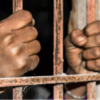By Dr. Froswa Booker-Drew
I love catching up with friends I grew up with. We’ve walked together through so many life moments—college, dating, career changes and opportunities, marriage, birth of children, divorce, death—for decades.
Since the pandemic began, we haven’t had the opportunity to travel and visit in person even though we talk and text. Being in person was reminiscent of the times of the past and it was if we never skipped a beat.
Catching up was a gift and our laughter turned to serious conversations of hurt, disappointment, and devastation. My friend shared details of a story that I knew in part but had no idea of the depth of the pain she experienced. Although the event happened some years ago, it was as if it just occurred yesterday.
Like so many of us, we move on, never taking the time to heal from the hurt. It wasn’t a time to give advice. I was there to listen and be present. I wanted her to know I heard her deeply and without judgement. I wanted her to know she wasn’t alone.
So often in our desire to help people, we end up doing more damage than good. Because of our unresolved pain and conflict, we tend to shun others from having spaces to really heal and become whole.
The church was designed to be a place that was safe and supportive, and yet, this place and the people of the church aren’t always aware of the damage they cause.
My friend elaborated on a situation that was caused by people she was close to, that were people of faith, and the way she was handled was not only inappropriate, but their words pierced her to the core.
I am reminded of the story in Mark 10:46-52 of Blind Bartimaeus. “Then they came to Jericho. As Jesus and his disciples, together with a large crowd, were leaving the city, a blind man, Bartimaeus (that is, the Son of Timaeus), was sitting by the roadside begging.
When he heard that it was Jesus of Nazareth, he began to shout, “Jesus, Son of David, have mercy on me!” Many rebuked him and told him to be quiet, but he shouted all the more, “Son of David, have mercy on me!” Jesus stopped and said, “Call him.”
We often focus on the tenacity of Blind Bartimaeus and his persistence to be healed by Jesus. Yet, think about those who rebuked him and told him to be quiet as he asked for and needed help.
As Black people, we have that bad by keeping secrets and saying what happens in our homes stays there. It keeps us in bondage. How often do we silence people because their pain reminds us of our own? How often do we tell people to get over it because we deceive ourselves in believing that we got over it and they should too?
Pain isn’t quiet. If it silenced, it is destructive leaving a trail of tears, doubt, confusion, depression, and anxiety.
What we are witnessing in our world is so much anger because we’ve rebuked people to push their pain aside, told them to shut up, demanded that they ignore their trauma and move on.
That anger has been bottled up and is now boiling over into airline stewardesses being punched, children retaliating from bullying killing classmates, and adults blowing up in restaurants and stores because they want to be heard, seen, and feel valued.
What would have happened if folks stopped and listened to Blind Bartimaeus and instead, walked with him to find Jesus for his healing and their own?
Blind Bartimaeus threw off his cloak, jumped up and ran to Jesus. We should do the same.
Throw off those things that bind us, move in a direction for healing and allow Jesus to guide us to a place of hope and restoration.
Dr. Froswa’ Booker-Drew is the host of the Tapestry Podcast and the author of three books for women. She is also the Vice President of Community Affairs for the State Fair of Texas. To learn more, visit drfroswa.com.









You must be logged in to post a comment Login